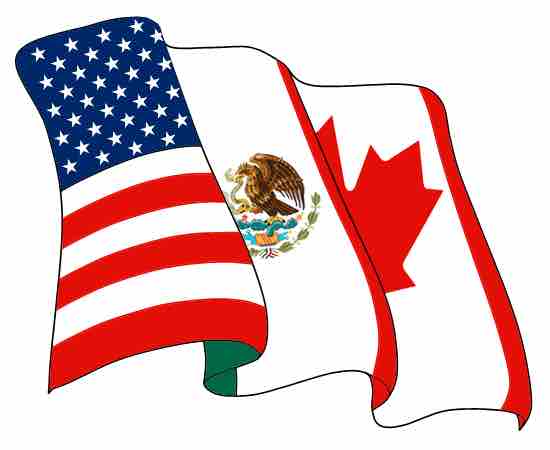A trade bloc is a type of intergovernmental agreement, often part of a regional intergovernmental organization, where regional barriers to trade are reduced or eliminated among the participating states. Trade blocs can be stand-alone agreements between several states, such as the North American Free Trade Agreement (NAFTA) or part of a regional organization, such as the European Union.
A single market is a type of trade bloc that is composed of a free trade area for goods, with common policies on product regulation, as well as freedom of movement on capital, labor, enterprise, and services. According to the principles of capitalism, a single market has many benefits. With full freedom of movement for all the factors of production between the member countries, the factors of production become more efficiently allocated, further increasing productivity. However, entering a trade bloc also strengthens ties between member parties. In so doing, member parties not only share each others' strengths but also each others' weaknesses.
Economist Jeffrey J. Scott argues that for a trade bloc to be successful, members must share four common traits: similar levels of per capita national income, geographic proximity, similar or compatible trading regimes, and a political commitment to regional organization. For better or for worse, trade blocs are prevalent. Since 1997, more than 50% of all world commerce was conducted under the auspices of regional trade blocs, such as NAFTA.

NAFTA
NAFTA is an agreement between the US, Mexico and Canada, as represented by the 3 flags in its logo.
A common market is a first stage towards a single market, and may be limited initially to a free trade area with relatively free movement of capital and of services, but not so advanced in reduction of the rest of the trade barriers.